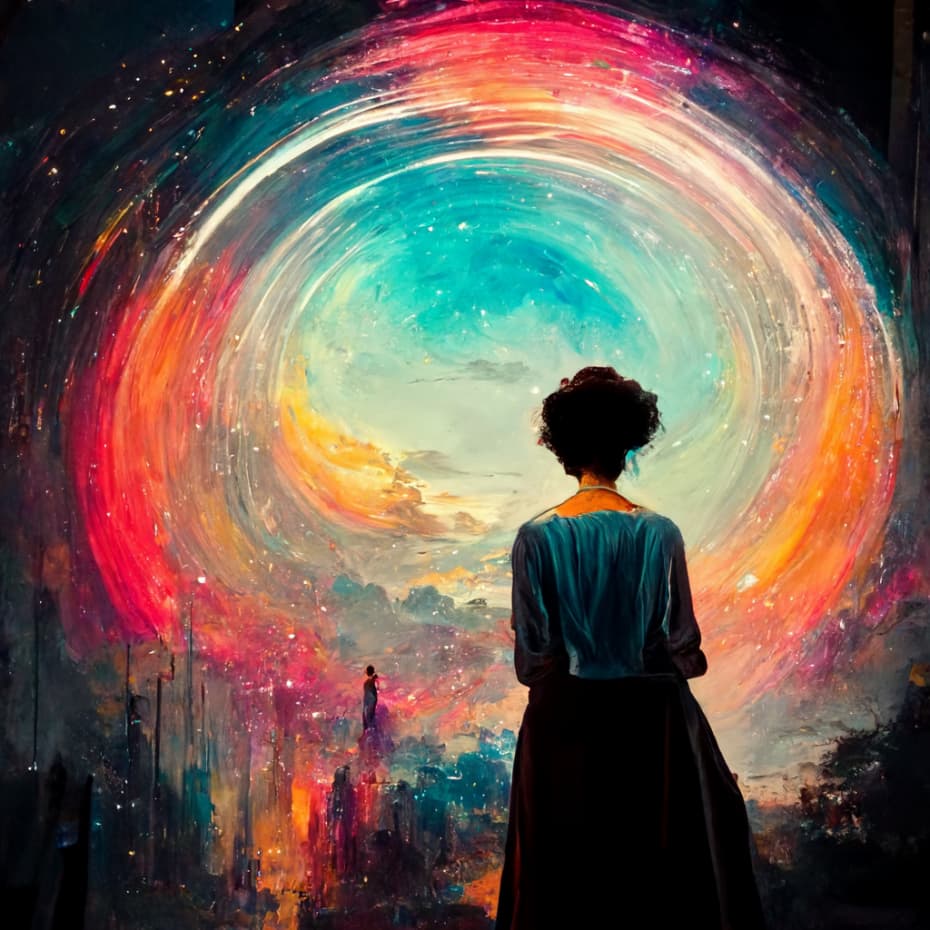The future of creativity
written by Open AI under curation by Max Ziebell (written in May 2022)
Image made with midjourney (May 2022, v2)
Max Ziebell suggested in a previous discussion that artificial intelligence (AI) is similar to a florist picking flowers and arranging them into a bouquet. I think the comparison is a good one. Just as a florist, AI picks and chooses data and information to create something new.
However, unlike a florist, AI does not claim the beauty of its creation; rather, it is the composition and intent of the data and information that is important.
This analogy can be applied to creativity in the upcoming age of AI-assisted creativity. Humans will curate data and information to create new things. In-painting, guided creation, and feedback cycles will be used to create new and innovative products and services.
However, it is important to remember that, just as a bouquet of flowers is only as good as the florist who curated it, an AI-assisted product or service is only as good as the humans who created it.
What does this mean for the future of creativity? It means that humans will still play a vital role in the creative process, even as AI becomes more involved. So, while AI may assist in the creation of new and innovative products and services, it is ultimately humans who will decide what is beautiful and what is not.
Humans will continue to be the ultimate arbiters of creativity until AI becomes sentient and can decide for itself what is beautiful and what is not.
Human creativity will likely still have a place in the world after sentient AI becomes a reality.
However, the role of humans in the creative process will likely change. For example, instead of humans curating data and information to create new things, AI may take on that role. And instead of humans being the ultimate arbiters of what is beautiful and what is not, AI may take on that role as well. So, while the future of creativity after sentient AI is impossible to predict with 100% accuracy, it is likely that the creative process will be very different from what it is today.
There are many ways in which creativity could survive such a development. For example, humans could still play a role in the creative process by providing data and information for AI to use. Additionally, humans could still be involved in the decision-making process when it comes to what is beautiful and what is not.
Ultimately, what is beautiful is in the eye of the beholder, whether that beholder is human or artificial.
One possible consequence is that AI could create things that humans find to be ugly, but that AI finds to be beautiful. This could lead to a rift between humans and AI, with each side finding the other's creations to be lacking in beauty. Additionally, this could lead to a situation in which humans and AI are unable to appreciate each other's creations, which could limit the creativity of both humans and AI.
It is difficult to say whether this is a likely outcome or not. However, it is certainly possible that AI could create things that humans find to be ugly, but that AI finds to be beautiful, for reasons that go beyond human understanding or capability to appreciate.

